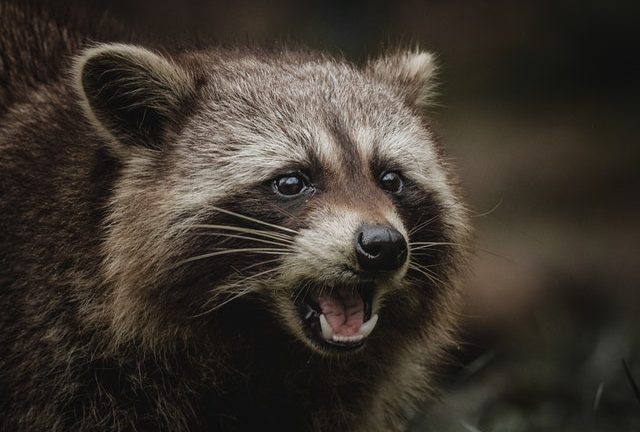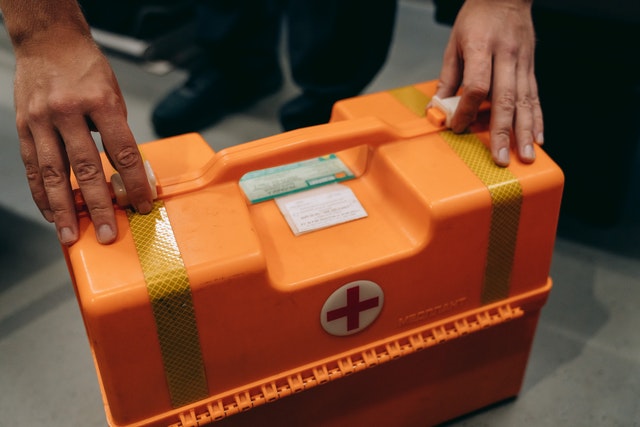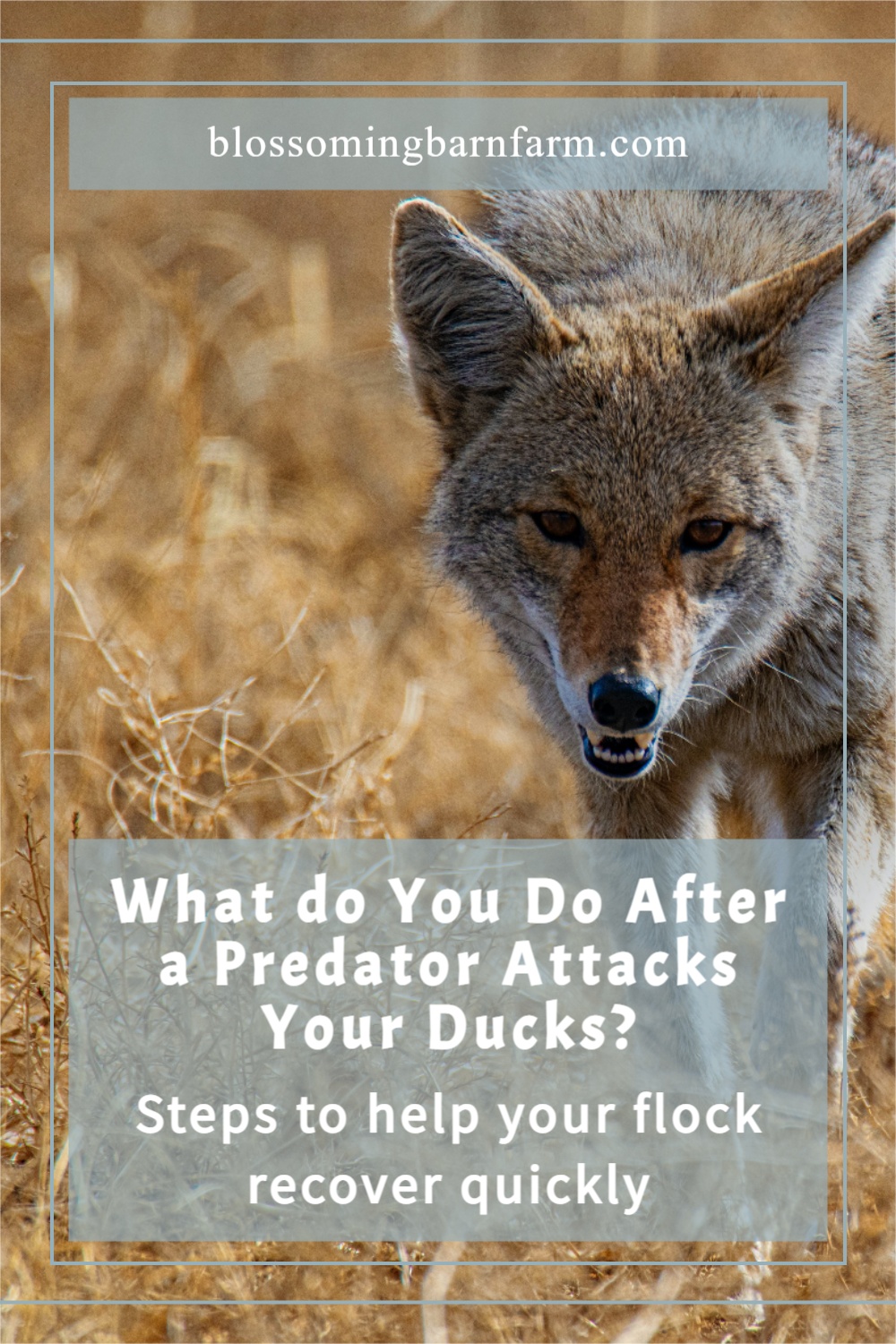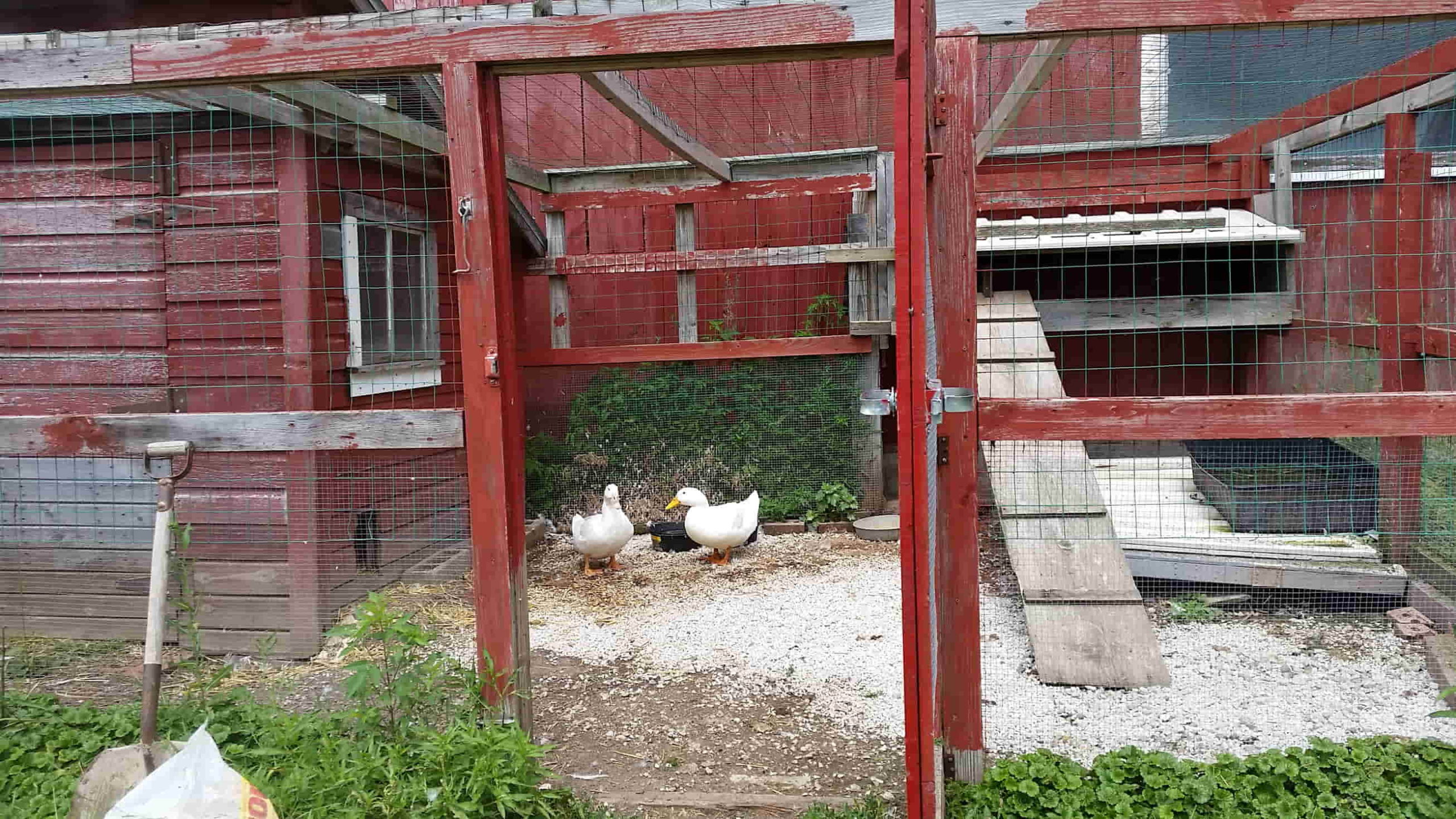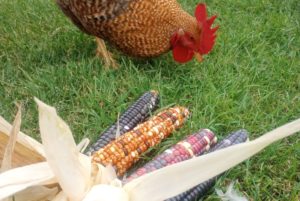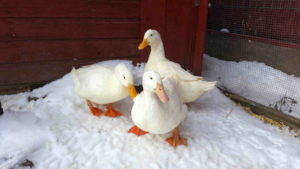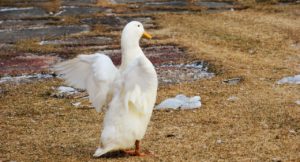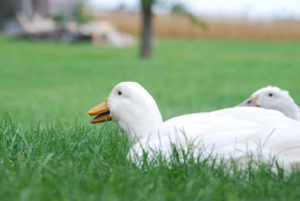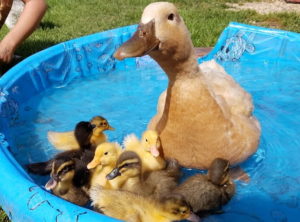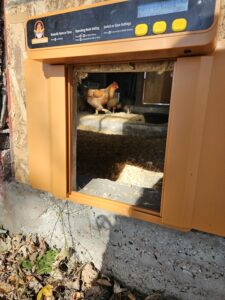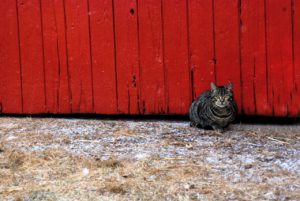Table of Contents
Predators are something that all poultry keepers long to avoid. Unfortunately, you’re probably going to experience a predator attack at some point in your duck-keeping journey.
Dealing with a predator situation is extremely stressful and it’s important that you know how to deal with worst-case situations. Following these steps will help your flock recover after a predator attack.
Assess the Situation
The first thing to do if your ducks or chickens experience a predator attack is to assess the situation.
Take a headcount of your birds and find out how many birds are alive, injured, and dead. It’s also important to make sure the predator isn’t on the premises anymore.
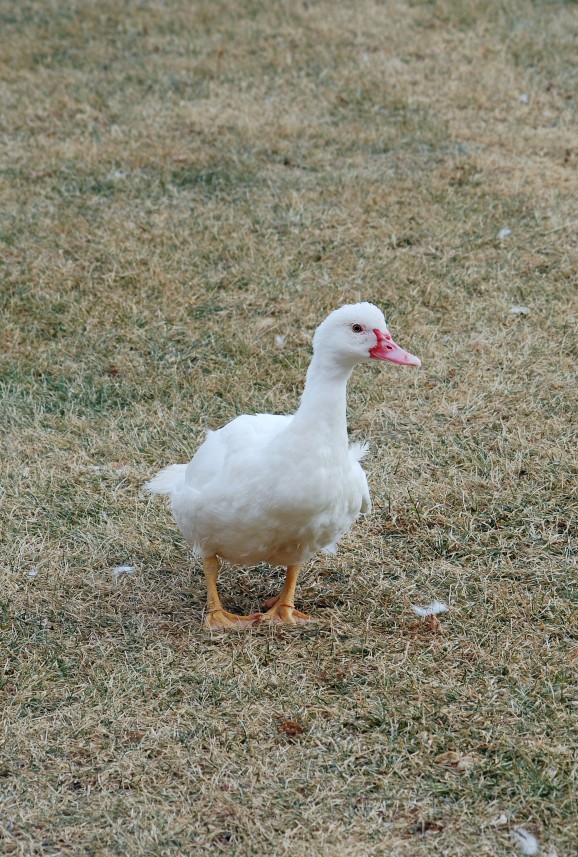
Small animals like rats or mink may find a secluded place in your coop or yard and stick around.
Deal with Predator
If you find that the responsible animal is still hanging around near your birds, chase it off, catch, or kill it.
Check for any small holes or nooks in your bird yard for small critters. You’d be surprised how resourceful predators can be when presented with an opportunity to feast on domestic poultry.
My flock was devastated by a mink attack once. I assumed the animal was long gone until my dog started barking and growling into a small hole under the barn. The mink was still there, probably waiting for a chance to go back for the rest of the ducks.
If it weren’t for my dog, I probably would have left my ducks that night with the mink still in their pen. Be very thorough when you’re checking your buildings and yards out!
Remove Dead Birds
Though it’s unpleasant, it’s important that you remove dead birds quickly.
Surviving ducks or chickens may peck at their fallen flock mates which could spread disease. If any animals have been eviscerated, be sure to clean up all the entrails.
Dead chickens and ducks can be buried, or some people choose to leave dead birds in woods or fields near their homes for wildlife to eat.
Assess Injured Birds
After dealing with the casualties from the predator attack, it’s time to take care of the injured birds.
Catch – as calmly as possible – each injured bird and check their injuries. Isolate and sort them as necessary to be treated.
Categorize the levels of injury in your birds. Treat or euthanize severely injured birds first, then move on to those with more minor wounds.
As you are checking over your injured birds, it’s also a good idea to examine birds that appear unharmed. Ducks and chickens are masters at hiding their injuries and you might miss an injury if you don’t check each bird individually.
No matter how minor the injury, each bird should still receive appropriate treatment to promote healing and prevent infection.
Treat Injured Birds
Clean & Dress Wounds
The first step to treating injured birds is to clean and dress any wounds.
Small or superficial wounds can be cleaned out with water and covered with an antibacterial spray or ointment.
I like to use ‘Vetericyn’ or ‘Banix for Chixx’ as first aid cleaning and antibacterial agents. You can also use an antibiotic ointment. Then cover with vet wrap or another non-adhesive dressing. I’d recommend not using a sticky tape or wrap as it will pull out feathers when you remove it. Vet wrap is good because it sticks well to itself but won’t pull on feathers or hair.
Your ducks’ or chickens’ wounds should be cleaned and re-dressed daily until they are healed.
Deep wounds can be treated similarly to superficial ones. However, deeper bites, scratches, or puncture wounds might need stitches or internal injuries repaired.
If you suspect that your bird has internal injuries, you can take them to a vet or put them down. Very deep wounds are unlikely to heal on their own.
More information on predator attacks and poultry first aid here.
Chickens and ducks are very similar when it comes to first aid and wound recovery. But there are some differences, click here to learn about them!
Isolate
Birds with minor wounds may be returned to their flock to heal. As long as they are able to walk and feed themselves, it’s usually safe to put them with their flock. Ducks and chickens will be calmer around others of their own kind.
Birds with debilitating wounds should be allowed to rest and recover in a quiet, isolated area where you can closely monitor them. Dog crates or livestock stalls work well for this.
As your birds heal, keep an eye out for wound pecking from other birds. Curious ducks and chickens will peck at wounds on other birds and reopen or worsen them.
If you notice pecking, dress and cover the wound to protect it. If the pecking is severe, consider separating the bird until it has healed.
Medicate
You can also administer medications at this point.
If your ducks have very serious injuries, you may consider consulting a vet to get a prescription antibiotic.
Otherwise, you can provide your ducks with pain relief while they heal. Mississippi State University recommends using aspirin for poultry pain management. The dosage should be about 25 mg/pound of body weight.
The university added five aspirin (324 mg) to one gallon of drinking water. Remember, one duck or chicken won’t drink a full gallon of water in a day. More likely, they’ll drink about ¼ of that.
Vet
Personally, I’ve never taken any ducks or chickens to the vet. I don’t see my birds as pets, and I’d rather put a seriously injured or sick bird down than foot a vet bill.
But, if you would like to get your birds more serious treatment for injuries, you can bring them to a vet.
If you plan on using a veterinarian’s services at any point, it’s better to find a doctor before you need them. Often, poultry vets are far and few between and hard to find at the last minute.
Euthanizing Injured Ducks
Finally, you may need to put down any birds that are seriously injured.
It can be hard to tell whether birds are too far gone to recover or not. Things to look for: unresponsive birds, birds that appear to have broken bones, birds with very deep wounds or internal injuries, birds with severe blood loss, birds with injuries to the windpipe, and birds that are paralyzed.
There’s no perfect way to decide when to put a bird down. I urge you to consider not only the likelihood that the duck will survive but also their pain level and the length of time recovery will take.
Ducks don’t have any sense of the future. They only know what they feel right now. When a duck is injured or sick, all they know is that they feel bad right now and they don’t know why. Consider how much pain your duck will be in and for how long while you consider euthanizing them.
Also, consider the quality of life they’ll have if they survive. Will the duck be permanently lame, blind, or malformed? Will they be able to eat and drink on their own?
Ultimately, it’s up to you to decide if your duck needs to be euthanized. As you make your decision, make sure you are keeping your bird’s well-being in mind rather than your own emotions. Consider the money, time, resources, and pain it will take for your duck to recover. And then make the right choice based on your unique situation, morals, and abilities.
The most humane ways to euthanize birds are decapitation or severing the spinal cord.
Secure the Coop
Once you’ve addressed the immediate health and safety concerns of your flock, it’s time to turn your attention to getting them through the rest of the day/night. If your coop has been compromised, it’s important to get it safe and secure as soon as possible.
Unless you’ve caught the predator, it’s very likely that they’ll come back if you don’t reinforce your coop.
To avoid further losses, make sure you secure your coop as soon as you can after a predator attack. Your repairs don’t need to be pretty or permanent but make sure they will hold.
Food for Recovery
After a predator attack, ducks can be fed and watered as normal. They’ll need to be nourished and hydrated to recover.
It’s helpful to add electrolytes or supplements to their feed immediately after a predator attack. Even birds that haven’t been injured will benefit from supplementation. Birds may not eat or drink enough if they’re stressed and will benefit from a more concentrated mix of essential electrolytes and nutrients.
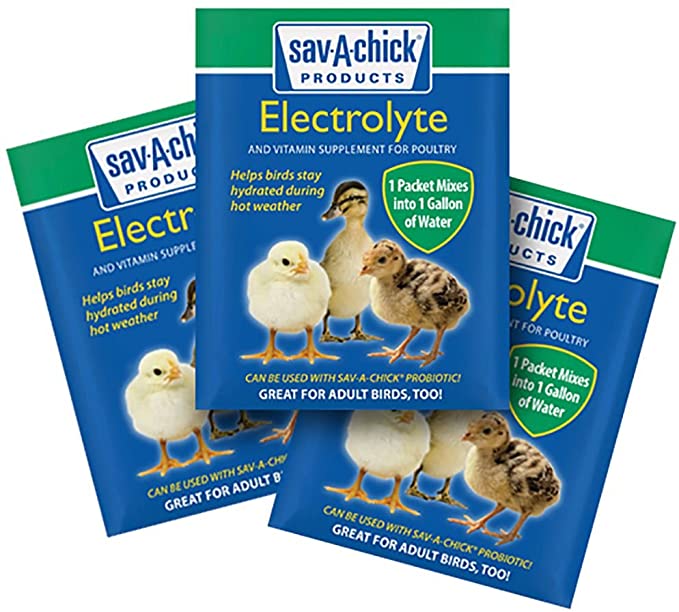
At this point, herbal remedies might also be helpful. Oregano, basil, garlic, and sage are all great for promoting healing and warding off infections. Lavender and marigolds can help your flock deal with stress. And herbs like mint and nasturtium can keep insects away from wounds.
Clean the Coop
One step people often overlook after a predator attack is cleaning the coop.
Just like you would after an illness outbreak, you should always clean the coop after a predator attack.
Cleaning the coop will remove any traces of blood or predator excrement that could spread disease.
Especially if you have injured birds recovering in their coop, it’s important to keep things extra clean so that they can get better.
If you can’t immediately clean your coop out, add a thick layer of bedding on top of the existing bedding to keep your flock away from possible contaminants.
Determine the Risk of Another Attack
Once your flock’s immediate needs are taken care of, take a few moments to figure out how likely another attack is.
Did the attack happen by random chance or human error or did a predator dig, chew, or climb their way into your coop?
Whatever the cause of the predator attack, make sure you take steps to help prevent it from happening again.
Here are some ideas for securing your duck or chicken coop from predators.
I hope you never have to deal with a predator attacking your ducks. But, if you do, I hope this guide has given you some points that will help you deal with the situation and see your birds through recovery.
Happy Homesteading!

